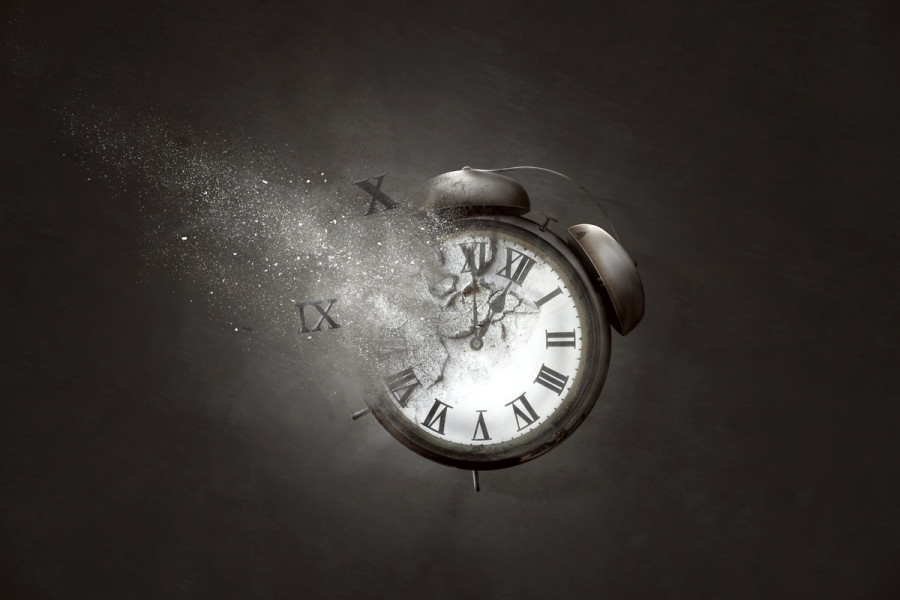Columns
The baby is due
Nepalis are complacent, and that can create major problems as more test positive for the novel coronavirus.
Subina Shrestha
I’m writing this from the United Kingdom, my family on the seventh day of self-isolation. When I boarded the flight to the UK on March 12, Europe had just been declared the epicentre of the virus and only 10 people had died here in the UK. As I write this, Nepal, along with the UK, are imposing lockdowns.
Unlike the rest of Europe, the UK’s approach to Covid-19 has been to ‘delay’ the virus, allowing people to go on as normal for as long as possible so that there would be a cohort of people infected. The logic was that by the time the viral infections were at its peak, there would be a herd with immunity. So when we arrived, people were still hugging and shaking hands, going to work on crowded trains and to pubs in the evening. It’s been a week since the government changed their tone and asked people not to leave home. By now, several hundred people have died in the UK and more than 6,000 have tested positive.
By the time we come out of this global crisis, the world will be a different place. It will have tested every one of us, our abilities to live with some and without others. But even as I am in a country where the virus is looming near and Nepal has only three active cases of Covid-19, I am worried. What concerns me the most in Nepal is the utter lack of foresight of the leadership, before, during and after this crisis. The leadership seems to look at situations in a similar fashion to how my one-time employee, Man Bahadur, did under my employ.
Back in 2006, I asked Man Bahadur’s help to prepare a ‘go bag’ in the eventuality of an earthquake. He looked at me with an incredulous expression and said, ‘bachha paunu kahili kahili, bhoto siune ahile’ (‘you don’t know when you are having a baby but you’re already in a rush to stitch baby clothes’). After announcing these ‘wise words’, Man Bahadur simply walked away, refusing to acknowledge my request. The national mentality is pretty much the same.
From the tourism minister touting Nepal as a ‘corona free’ zone to the health minister gloating that Nepal falls within the ‘green zone’, the leadership has shown an utter lack of desire to understand the nature of Covid-19, or to prepare for a pandemic. The knee jerk reaction to close the borders to all Nepalis is directly opposite to the way the government paid for Nepalis to be rescued from Wuhan. I’ve been talking to workers who’ve lost their jobs in the UAE, desperate to come home and find that their government has closed the doors to them. The labour force whose income has supported Nepal’s economy will not be getting the same treatment as those from Wuhan. And Monday’s physical press meet to call the lockdown takes the biscuit; while calling for social distancing, the government had more than 100 people in a single room.
The infectious nature of the novel coronavirus makes the lockdown a welcome move, one that might save hundreds of lives. That is for families living in more than one room with their own toilet and running water. I can’t see that happening in my neighbourhood, where families cram in single rooms and have to stand in queues for drinking water in neighborhood taps. Space and water are both luxury items for most people in Kathmandu and other urban centres.
Further, have the leaders thought of what most people might eat? And how? Most of the people who have low-paid jobs don’t have a bank balance or the purchasing power to keep a stock of food. There have been no plans to give the poor a subsistence, a possibility to pay rent or buy food. As small businesses are forced to close, the government has yet to draw up a stimulus package or even plan an interest rate cut.
If and when the pandemic hits, health professionals, with little to no personal protective equipment, life-saving ventilators and ICU facilities will be asked to save the lives of hundreds, if not thousands. Did the ministers, who asked for more tourists, think of the health professionals and ask for health equipment or protective outfits? While the government seems to be scrambling to find the necessary equipment, following Man Bahadur’s analogy, the baby is about to be born now. The clothes need to be here and ready before it arrives.
Nepalis are quick to reply that it is Pashupatinath who saves us. But even Pashupatinath might get tired of this lethargic reaction of the leadership and might want them to use logic. Nepal has imposed a one-week lockdown. It’s been known that the incubation period of the virus is up to two weeks.
From far away, I worry about home, knowing that the danger is much closer to me. We shall all survive this, but only if basic logic can prevail.
***
What do you think?
Dear reader, we’d like to hear from you. We regularly publish letters to the editor on contemporary issues or direct responses to something the Post has recently published. Please send your letters to [email protected] with "Letter to the Editor" in the subject line. Please include your name, location, and a contact address so one of our editors can reach out to you.




 22.12°C Kathmandu
22.12°C Kathmandu















